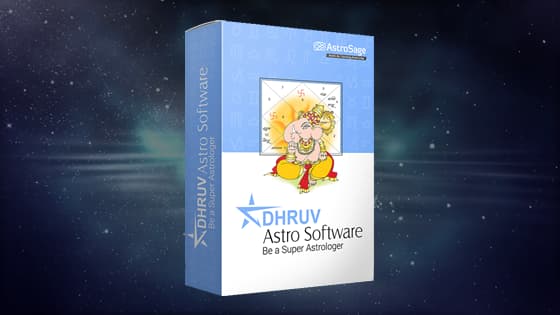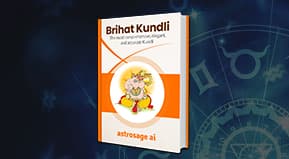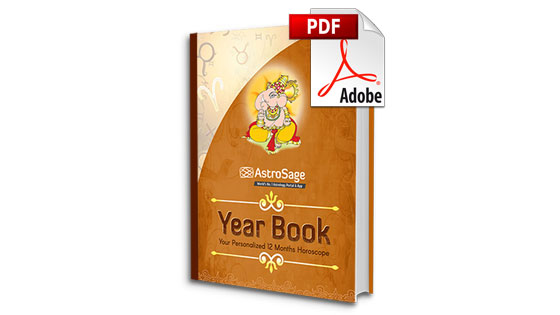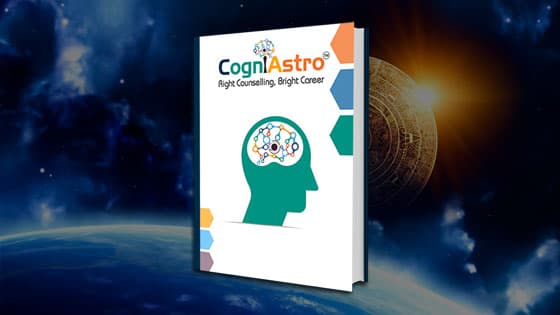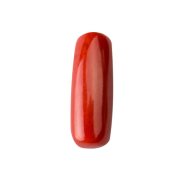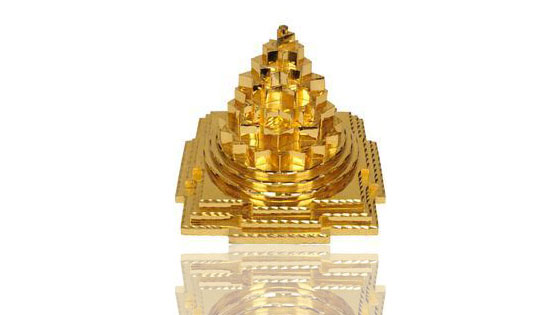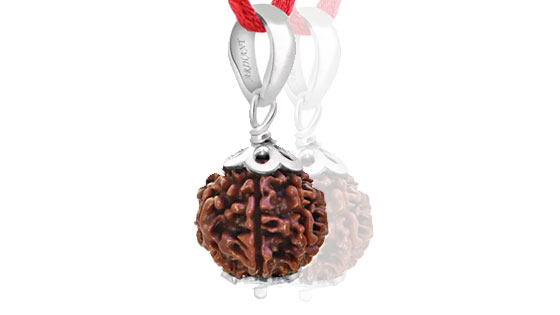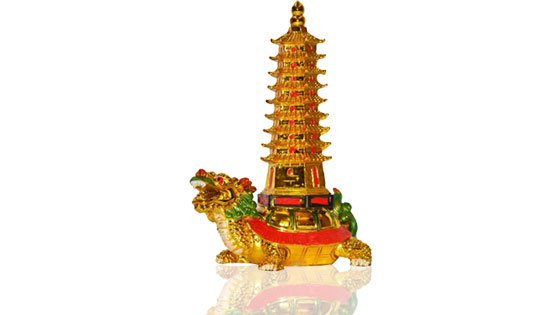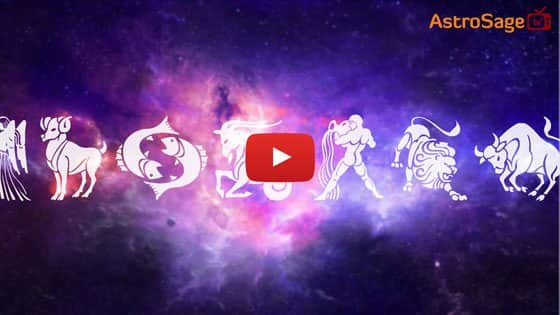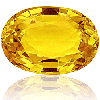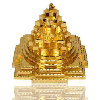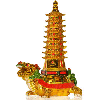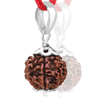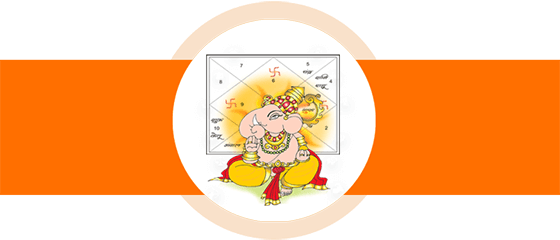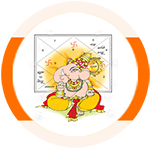Lal Kitab: Remedies, E-Book and Tools
Lal Kitab is a remarkable branch of Vedic astrology. Collection of the 5 books, written during the period of 1939-1952 is called Lal Kitab. Written in ancient Urdu language, first time in the history of astrology, Lal Kitab introduced a new style of horoscope analysis with quick and affordable remedies. Authorship of the books seems to be disputed. However, finding by our research community shows that the books were written by Pt. Roop Chand Joshi.
What is Lal Kitab?
Lal Kitab is basically a book of Astrology in which has given a different story of Vedic astrology in different ways. It is mainly made in the words of Urdu and not in the verses of Sanskrit. As per Vedic astrology, in Lal Kitab, each quote is considered as a permanent master planet and all the astrological calculations are based on that only. In this there is Aries zodiac sign in the first house, Taurus amount to the second house and similarly 12 quarters have been arranged and the result is calculated on the basis of exact location factor of each planet of each house. The characteristic of the Lal Kitab is that it has given such measures which are very easy in the form of sorcery and tricks and a normal person can get rid of these defects by doing these Lal Kitab remedies.
Features of Lal Kitab
Lal Kitab is a very easy book in relation to astrology by which a normal person can also examine his horoscope according to the circumstances around him, and can make the planets conducive with simple measures. The rules of Vedic astrology is completely different from the rules of Vedic astrology. For example, Lagna is given the highest regard in Vedic astrology and at the time of birth, the amount raised on the eastern horizon is written in Lagna Bhaaw. But in Lal Kitab, nothing happens like this. In it, the Bhaaw of kundali remains constant as Kaal Purush Kundali. For example, according to Vedic astrology if a person is born in Sagittarius Lagna, then his birth chart will be written in Sagittarius first which is Lagna Bhaaw aswell. But it will not be the same in the Lal Kitab. According to the Lal Kitab, First house or Lagna house will be written in Aries and in that sequence, Sagittarius will be marked in the ninth house. Apart from this, there is also a different opinion about the planets and the Lal Kitab horoscope which is also called teva. According to this, word like pakka ghar, a position of the sleeping planet (soya hua grah), the sleeping position of bhaaw or house (soya hua bhaaw ya ghar), companion planets or blind teva, religious teva and navalik teva are also used, which has highest importance according to Lal Kitab. Come let's know about these words in detail.
Pakka Ghar
In Vedic astrology, every house has their fixed nature but in Lal Kitab, you can't find the same. Here, like the Kala-Purusha Kundali, Aries is located in the first house and in this way Taurus, Gemini, Cancer, Leo, Virgo, Libra, Scorpio, Sagittarius, Capricorn and Aquarius and Pisces marks in the twelfth house. Now because the lord of Aries is the Mangal, then the pakka Ghar of Mars will be considered as the first house. The fourth house of the moon will be considered as a permanent home of the moon. Similarly, the ninth house Jupiter and tenth and eleventh house are considered to be the permanent home of Saturn.
Soya hua Grah (Sleeping position of Planet)
According to the Lal Kitab Horoscope, if a planet is not giving sight to any other planet, such a planet is called soya Hua grah or sleeping planet. But if a planet is its pakka ghar then that will not be considered as soya hua grah or in the sleeping position. It means that the effect of that planet will be considered limited to the house in which it is located, not beyond that. For example, if there is a position of Venus in the fourth house of kundali and the tenth house is remain empty, then in this condition Venus will be considered as soya Hua grah or sleeping planet. Because the seventh sight of Venus is on tenth house but there isn't any planet's position and the fourth house is not even a pakkar ghar of Venus as well. In this situation, the effect of Venus will be for the fourth house only and on that basis, it will show the results.
Soya Hua Ghar (Sleeping position of House)
If the house of a Lal Kitab Kundali does not have a planet and is empty and there is no sight of any other planet on it, then it will consider as sleeping position of a house or soya Hua ghar. It is believed that sleeping position of house doesn't provide any effect related to itself until it can be awakened by following some remedies. Here are the different ways of awakening each house:
- Mars remedies should be followed to awaken the first house.
- Moon remedies should be followed to awaken the Second house.
- Mercury remedies should be used to awaken the third house.
- Moon remedies should be followed to awaken the fourth house.
- Sun remedies should be used to awaken the fifth house.
- Rahu remedies should be used to awaken the sixth house.
- Venus remedies should be followed to awaken the seventh house.
- Moon remedies should be used to awaken the eighth house.
- Jupiter remedies should be used to awaken the ninth house.
- Saturn remedies should be used to awaken the tenth house.
- Jupiter remedies should be followed to awaken the eleventh house.
- Ketu remedies should be followed to awaken the twelfth house.
Companion Planet (Sathi Grah)
In Lal Kitab, the concept of a companion planet has also been considered.
Companion planets are the planets that sit in one another's fixed house position or in pakka ghar. Such planets do not have a bad effect on each other and therefore become companion planets and give a good effect. For example, Saturn is the fixed lord of eleventh house and Sun is of the fifth house. Even if the Sun is located in the eleventh house and Saturn is in the fifth house, even though according to Vedic astrology it is the enemy of each other, but according to the Lal Kitab it will be considered as the companionship of each other and will not affect each other's house.
Blind Planet or Blind Teva (Ratandhra Grah or Andha Teva)
According to the Lal Kitab, the planets that are seen in the day and are blind in the night, which do not provide vision, such planets are called blinds planets and in which kundali such planets are located are known as Blind Teva. For example, if Saturn is in the seventh house and sun is in the fourth house, then such teva are known blind teva. If a person has a Blind Teva then it can affect his family life, professional life, marital life and badly affects the mental status.
The RighteousTeva or Dharmi Teva
If the sum of Saturn and Guru Jupiter is formed in the Kundali, then such a Kundali is known as the righteous Teva or Dharmi Teva. In such Kundali the effect of a person's inauspicious planets has been reduced. According to the Lal Kitab Jupiter is the lord of ninth and tenth house and Saturn is the lord of twelfth and eleventh house. The companionship between these in Kundali vanishes all the problems and help one to get rid of their difficulties in life. If there is a collaboration between Saturn and Jupiter in Kundali's sixth, ninth and eleventh house, it indicates the good effects in life.
Minor Teva or Nabalig Teva
According to the Lal Kitab, when the first, fourth, seventh and tenth house or center house remain blank of a Kundali and indicates that there is no planetary position in it, then such a teva called minor Teva or Nabalik Teva. Apart from this, if only sinner planets, such as Saturn, Rahu, Ketu or Solitary Mercury are located in these expressions, then such a teva is called minor Teva or Nabalik Teva. The impact of the planets in the minor Teva cannot be said completely for 12 years, because in such condition till 12 years of age, the person gets results only on the basis of past birth and after 12 years The statement is done. If there is a minor or nabalik Teva in anyone's Kundali, then they have different effects of different planets till 12 years. You can understand these effects in following ways.
- The planet of seventh house effects the first year of birth.
- The planet of fourth house effects the second year of birth.
- The planet of ninth house effects the third year of birth.
- The planet of tenth house effects the fourth year of birth.
- The planet of eleventh house effects the fifth year of birth.
- The planet of third house effects the sixth year of birth.
- The planet of second house effects the seventh year of birth.
- The Planet of fifth house effects the eighth year of birth.
- The Planet of Sixth house effects the ninth year of birth.
- The planet of twelfth house effects the tenth year of birth.
- The planet of first house effects the eleventh year of birth.
- The planet of eighth house effects the twelveth year of birth.
Different types of debts (Rin) according to Lal Kitab (Red Book)
Red Book helps us understanding debts (rin) related to various types of relationships. If we can learn about these debts, then we can avoid them by doing some remedies and eventually we can be saved from facing hardships which come into our lives due to these debts. Let us know in detail about these debts of Lal Kitab:
Debt of Father or Ancestor or Pitru Rin
According to Lal Kitab, when Venus, Mercury or Rahu or their combination took place in the second, fifth, ninth or twelfth house, then it is considered that such a person is under Pitru Rin. Due to this debt, the accumulated wealth of the person is destroyed and the suffering in life has to be faced. Bad effects are experienced most significantly in old age.
Debt of Mother or Matru Rin
According to the red book, when Ketu is placed in the fourth house, then the moon suffers. Moon is the natural significator of the mother. In this situation, the person is considered under Matru Rin. Due to this debt, failure is achieved in the work and the probability of monetary losses is created. At the same time, the person remains under the burden of diseases and debts.
Debt of Woman or Stree Rin
According to Lal Kitab, when the sun, moon or Rahu or their conjunction is there in the second or seventh house of the horoscope, then the person is considered to be suffering from a debt of woman. Because of this debt, the person has to face many kinds of crisis. If a person organizes any auspicious program at home, then happiness turns into sorrows.
Debt of Brother or Relative (Bhratru or Sambandhi Rin)
According to the red book, when Mercury or Venus is located in the first or eighth house of a horoscope, then that person is considered under the Brother or relative's debt. As a result of it, the one enters in the troubles and combinations of losses arises in many ways.
Debt of Sister or Daughter (Bahin or Putri Rin)
According to Lal Kitab, when Mercury is sitting in the third or sixth house of the horoscope, the person is considered to be part of this debt. As a result of this, the one does not get any help from friends and relatives, rather one behaves hostilely. The person has to face economic problems in the home and there are several shortcomings in life.
Debt of Cruelty or Nirdayi Rin
According to Lal Kitab, when the Sun, Moon or Mars or any of these are in conjunction with each other and placed in the tenth or twelfth house of the horoscope, then the person is considered to be suffering from this debt. The effect of this debt is not only on the person but also on the entire family. There are many kinds of problems in life and there is always an issue with the one.
Debt of Unborn or Ajanma Rin
According to the Lal Kitab, when the Sun, Venus or Mars or conjunction of these planets are there in the twelfth house of the horoscope, then the person is called under the side of this debt. The presence of this debt in birth chart causes physical damage to the person. Many times the combinations of the person going to jail are made. Apart from that, the person has to face defeat in many places and the family also passes through problems.
Debt of Own or Swa Rin
According to the red book, when Venus, Saturn, Rahu or Ketu are located in the fifth house or conjunction of any of these is in the fifth house, then the person is considered to be a part of self-debt. Due to the presence of this debt, the one has to face struggles throughout life. One has to face the debate and the defeat in court cases. One is repeatedly get insulted without any reason and sometimes the state penalty is also obtained.
Debt of Divine or Daiviya Rin
According to Lal Kitab, when the Moon or Mars is situated in the sixth house of the horoscope, then the person is considered to be suffering from this debt. With the presence of this debt in the Teva (birth chart) of the one, the entire family of the native has to face problems. The person has to bear wealth losses and expenditure increases. When such a person trusts someone, the person gets betrayed by them, and the person has to face child-related problems.
Thus, according to Lal Kitab, many types of debt affect the life of a person. Therefore, if a person takes the measures of these debts, then liberation is attained and the person in life leads to elevation.
In order to avoid the effects of the above planets, a person must take remedies related to the planets of those houses, so that the problems can be avoided from time to time.
Frequently Asked Questions
1. Is Lal Kitab predictions true?
In Lal Kitab, instead of predictions, verification is used to confirm planetary impact on each house. Once, ascertained, Lal Kitab can suggest some very effective remedies.
2. Is Lal Kitab remedies effective?
Yes, a good Lal Kitab astrologer can suggest very effective remedies. Lal Kitab remedies are not only effective but also generally easy to perform.
3. Who wrote Lal Kitab?
Lal Kitab book does not have author name on it. But it is widely believed that Pt. Roop Chand Joshi has written the book.
4. Is Lal Kitab a Persian or Arabic book?
No, Lal Kitab is written originally in Urdu in Punjab state of India. Lal Kitab is a name for five books written between 1939 to 1952.
5. Is Lal Kitab and Ravan Samhita same?
No, there is no connection. Lal Kitab and Ravan Samhita are two totally different books. In fact, Lal Kitab is not a single book but a name for a book series.
Astrological services for accurate answers and better feature
Astrological remedies to get rid of your problems
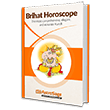
AstroSage on MobileAll Mobile Apps
AstroSage TVSubscribe
- Horoscope 2024
- राशिफल 2024
- Calendar 2024
- Holidays 2024
- Chinese Horoscope 2024
- Shubh Muhurat 2024
- Career Horoscope 2024
- गुरु गोचर 2024
- Career Horoscope 2024
- Good Time To Buy A House In 2024
- Marriage Probabilities 2024
- राशि अनुसार वाहन ख़रीदने के शुभ योग 2024
- राशि अनुसार घर खरीदने के शुभ योग 2024
- वॉलपेपर 2024
- Astrology 2025











